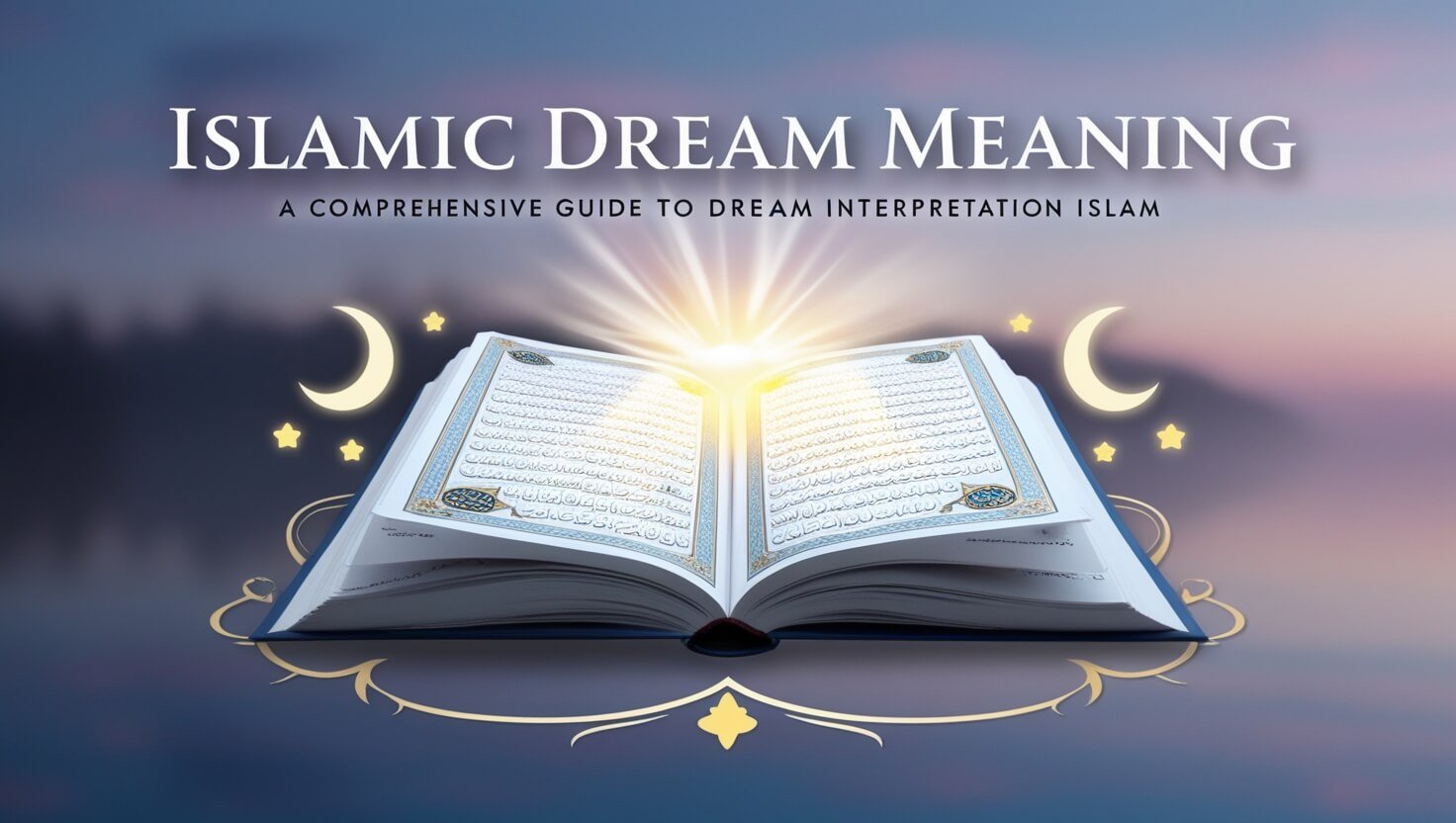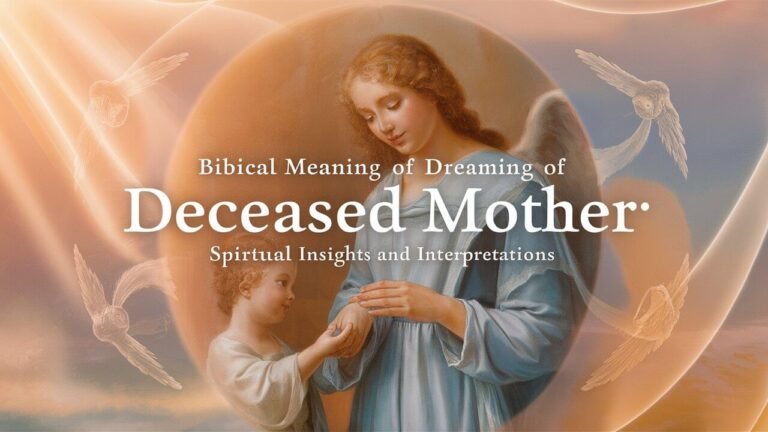Islamic Dream Meaning: A Comprehensive Guide to Dream Interpretation in Islam

Dreams in Islam are seen as a way to connect with the spiritual world. The Quran talks about dreams using words like Ru’yaa (vision), Manam (sleep), Hulum (dream), and Bushra (tidings). Dream interpretation, or oneiromancy, is called ‘Tafsir’ or ‘Tabir’ in Arabic.
For over 1500 years, Muslim scholars have studied dreams. Their theories match many modern psychological ideas. This guide explores Islamic dream analysis, its history, types, and how it helps in spiritual growth and self-discovery.
Foundations of Dream Interpretation in Islamic Tradition
The roots of Islamic dream interpretation come from the Quran and Prophet Muhammad’s teachings. Ibn Siren, a key figure, built a detailed dream analysis system. He based it on Islamic scriptures and the Prophet’s sayings.
Origins of Islamic Dream Analysis
In Islamic tradition, dreams are seen as spiritually and symbolically rich. The Quran and Hadith mention dreams often, showing their value. This tradition has shaped Islamic dream interpretation over the years.
Role of Ibn Siren in Dream Studies
Ibn Siren is known as the pioneer of systematic dream interpretation in Islam. He looked at the dream’s content, the dreamer’s life, and their beliefs. This approach has greatly influenced Islamic dream understanding.
Historical Significance of Dreams in Islam
Dreams have always been important in Islamic history. The Quran and Prophet Muhammad’s teachings highlight their spiritual value. The Prophet emphasized the importance of dreams in Muslim lives.
| Statistic | Value |
|---|---|
| Estimated loss of scientific heritage from medieval Islamic civilization during the Mongol invasion in 1258 C.E. | Over 90% |
| Books from the medieval Islamic period that survived the Mongol invasion | Less than 1 in every 1000 |
| Avicenna’s emphasis on the need for plenty of sleep for older individuals in “The Canon of Medicine” | Designated a chapter on the care of the aged |
| Rhazes’ early detailed description of sleep paralysis in “Kitab Al-Hawi fi al-Tibb” | Before its recognition in European literature |
Three Primary Categories of Dreams in Islam
In Islam, dreams are divided into three main types. Each type has its own meaning and importance. This way of classifying dreams is based on the teachings of the Prophet Muhammad.
- Ru’yaa: These are good visions from Allah. They are for those who are truthful and carry deep spiritual messages. The Prophet Muhammad told his followers to share these dreams with people they trust. He also advised them to ask Allah for protection against any negative effects.
- Hulum: These are bad dreams caused by Shaytan, the devil. They are seen as false and should not guide us. But, the Prophet Muhammad reassured his followers that these dreams won’t harm them in real life.
- Self-generated dreams: These dreams come from our own thoughts and experiences. They don’t have spiritual meaning but can show us what’s going on inside our minds.
It’s important for believers to know the difference between these dream types. This helps them understand their dreams better and act wisely. The Prophet Muhammad’s teachings on dreams have been a key part of Islamic tradition for a long time.
| Dream Type | Origin | Significance | Interpretation |
|---|---|---|---|
| Ru’yaa | From Allah | Good visions, spiritual meaning | Share with trusted individuals, seek protection from Allah |
| Hulum | From Shaytan | Bad dreams, false | Do not take as guidance, reassurance that they will not cause harm |
| Self-generated | From one’s own thoughts and experiences | Provide insight into psychological state | No specific spiritual significance, may not require interpretation by experts |
Islamic Dream Meaning: A Guide to Dream Interpretation in Islam
Dreams are very important in Islamic traditions. They are seen as a way to connect with the spiritual world. The Quran, Hadith, and teachings of Islamic scholars help us understand dreams.
Spiritual Connection Between Dreams and Faith
In Islam, dreams are deeply spiritual. True dreams, called Ru’yaa, are seen as a special gift. They offer guidance and insights into our spiritual path. Prophet Muhammad’s teachings on dreams stress their spiritual importance.
Authentic Sources of Dream Interpretation
The Quran, Hadith, and writings of Islamic scholars are key for dream interpretation. They help us understand the meanings of dream symbols. By using these sources, we can better understand our spiritual dreams.
Cultural Context in Dream Analysis
Interpreting dreams in Islam also considers the cultural background. Different Muslim communities have their own ways of seeing dream symbols. It’s important to understand these cultural differences for a full grasp of dream meaning in Islam.
| Dream Symbol | Symbolic Meaning |
|---|---|
| Fire | Represents purification, spiritual enlightenment, or danger |
| Water | Signifies cleansing, renewal, or challenges |
| Lion | Symbolizes strength, courage, and leadership |
| Snakes | Can represent deception, enemies, or inner conflicts |
Divine Messages Through True Dreams (Ru’yaa)
In Islam, true dreams, or Ru’yaa, are seen as messages from Allah. They are clear, filled with positive feelings, and follow Islamic teachings. These dreams offer spiritual guidance, warnings, or good news that help the dreamer.
The Prophet Muhammad (peace be upon him) said true dreams are important. He taught that they should be shared as a way to thank Allah. These dreams are blessings that connect believers with their faith and the spiritual world.
Dreams in Islam are divided into three types: Ru’yaa (true dreams), Hulum (false dreams), and Nafsani (self-induced dreams). True dreams come from Allah, while false dreams come from the devil, Shaytan. Believers should ignore or seek protection from false dreams.
Islamic scholars, like Ibn Sirin, have studied dreams a lot. They use the Quran and Sunnah to understand true dreams. They teach how to spot authentic dreams and find their meanings using different methods.
The Quran tells stories of true dreams, like Prophet Yusuf’s dream about stars bowing to him. This dream showed his future greatness and Allah’s favor. These stories highlight the spiritual importance of true dreams in Islam and their role in guiding believers.
Prophetic Teachings on Dream Interpretation
Dreams are very important in Islamic teachings. Many Hadith (sayings of Prophet Muhammad) give us guidance on understanding them. The Prophet Muhammad gave advice on how to deal with different dreams, seeing their spiritual and practical value.
Hadith References About Dreams
Islamic tradition says Prophet Muhammad divided dreams into three types. He said dreams can be true from Allah, bad from Shaytan (Satan), or influenced by our own thoughts. He noted that true dreams are a key part of prophethood, showing their spiritual importance.
Prophet Muhammad’s Guidance on Dreams
The Prophet Muhammad told us to seek Allah’s protection from bad dreams. He said to spit three times on the left side and not to share bad dreams. He warned that only a few dreams will be untrue at the end of times.
Dreams in Quranic Stories
The Quran tells stories of dreams, like Prophet Yusuf’s (Joseph) dream of his future. It also shares Prophet Ibrahim’s (Abraham) dream about sacrificing his son. These stories show dreams as a way of receiving divine messages in Islamic teachings.
These teachings and stories from the Quran are key to understanding dreams in Islam. By following the Prophet Muhammad’s guidance and the Quran, Muslims can understand dreams wisely.
Recognizing Signs of Authentic Dreams
In the Islamic tradition, true dreams are clear, positive, and follow the faith’s principles. These dreams, called “Ru’yaa,” carry divine messages and spiritual insights. Knowing the signs of real dreams helps people understand their meaning and apply the guidance.
Feeling peaceful and calm after a dream is a key sign. Dreams that inspire and reassure often have deep meanings. Also, seeing the same themes or symbols in dreams can mean important messages or insights into one’s spiritual path.
- Prophetic dreams, or those that predict future events, are the highest form of true dreams in Islam. These visions often come true, proving they are from God.
- Dreams that lead to positive changes or follow Islamic teachings are genuine. They offer guidance, wisdom, and spiritual nourishment.
- The Prophet Muhammad, peace be upon him, said honest people get more true dreams. Being honest and sincere in life increases the chance of getting real dreams.
By recognizing true dreams, people can embrace spiritual insights and divine guidance. This strengthens their bond with God and deepens their faith journey.
Common Symbols and Their Meanings in Islamic Dreams
Interpreting dreams is a big part of Islamic tradition. Dreams are seen as carrying deep spiritual meanings. It’s important to understand the symbolic language of dreams for guidance and self-discovery.
In Islam, natural elements, animals, and religious symbols have special meanings. These interpretations can offer valuable insights.
Natural Elements in Dreams
Natural elements like fire, water, and snow have special meanings in Islamic dreams. Fire can symbolize passion, energy, or conflicts. Water often means knowledge, purification, or emotional changes.
Snow is seen as a sign of purity, peace, or a calming influence in life.
Animals and Their Symbolism
Animals in dreams have different meanings. Snakes might represent hidden enemies or deceit. Cats can symbolize femininity, independence, or even betrayal.
Horses are often linked with power, strength, and progress. Understanding animal symbols in Islamic dreams can guide the dreamer.
Religious Symbols Interpretation
Dreams with religious symbols, like the Prophet Muhammad or holy places, are very important in Islam. These visions are seen as true revelations from Allah, untouched by Shaitan (Satan).
Interpreting these dreams needs the help of scholars, Imams, or experienced dreamers. They can offer a deep understanding of their spiritual meaning.
| Dream Symbol | Symbolic Meaning in Islam |
|---|---|
| Fire | Passion, energy, possible conflicts |
| Water | Knowledge, purification, emotional changes |
| Snow | Purity, peace, calming influence |
| Snakes | Hidden enemies, deceit |
| Cats | Femininity, independence, betrayal |
| Horses | Power, strength, progress |
Proper Methods for Sharing Dream Experiences
In Islam, there are rules for sharing dreams. Dreams are seen as very spiritual. It’s important how we share and understand them.
Good dreams should go to people you trust and like. This way, your dream is respected and not misjudged.
But, bad dreams should stay hidden. The Prophet Muhammad (peace be upon him) said lying about dreams is a big sin. Keeping bad dreams to yourself prevents harm and unwanted attention.
- Share good dreams only with trusted, well-liked individuals
- Refrain from disclosing bad or unsettling dreams to avoid potentially harm
- Heed the Prophet’s warning against falsely claiming to have had a dream
The right way to share dreams in Islam is about being careful and respectful. By following these rules, we can understand our dreams better and find spiritual guidance.
Protection Against Negative Dreams
In the Islamic tradition, there are specific practices for protection against negative dreams. These practices are believed to help neutralize the harm or influence of such dreams.
- Seek refuge with Allah: Muslims are encouraged to seek refuge with Allah, the Almighty, when experiencing a bad dream. This is done by reciting the verse “A’ūdhu billāhi min ash-Shaytānir-rajīm” (I seek refuge in Allah from the accursed Satan).
- Spit lightly three times to the left: Upon waking from a bad dream, it is recommended to spit lightly three times to the left. This simple action is believed to help dispel the negative energy or influence of the dream.
- Change sleeping position: Adjusting one’s sleeping position is another practice suggested in Islamic teachings. This change in position is thought to help break the negative pattern of the dream.
- Offer prayer: After experiencing a bad dream, it is recommended to offer a prayer (salah). This act of worship is believed to help seek protection and guidance from Allah, neutralizing the harm of the negative dream.
These Islamic practices, based on the Quran and the teachings of Prophet Muhammad (peace be upon him), aim to provide spiritual protection and guidance. They help individuals who have experienced negative or disturbing dreams. By following these guidelines, Muslims can find comfort and reassurance in their faith. They reinforce their trust in Allah and seek His protection against the harm of bad dreams.
Dreams as Spiritual Guidance
In the Islamic tradition, dreams are seen as a way to receive spiritual guidance. The truth in these dreams is thought to depend on a person’s faith and character. Those who are truthful and pious are more likely to have dreams with real meaning.
Connection Between Faith and Dream Clarity
The strength of one’s faith is key to the authenticity of dreams. People who stay close to their faith are more open to divine messages in their dreams. This shows how important spiritual devotion and good character are for understanding oneself and the world.
Role of Personal Character in Dream Truth
In Islamic thought, a person’s character greatly affects the truth of their dreams. Those who are honest, humble, and righteous are more likely to have dreams that reflect the divine will. On the other hand, dreams of those with vices like greed or arrogance may be misleading or even evil.
This highlights the Islamic view that dreams can guide us spiritually. By focusing on our spiritual connection and moral integrity, we can better understand and interpret our dreams. This way, dreams can act as a bridge between our world and the divine.
Ethical Guidelines for Dream Interpretation
In Islam, there are rules for understanding dreams. Interpreters should be humble and careful, asking for Allah’s help first. They must not rush to judge, as dreams are very personal and can vary greatly.
Islamic teachings say to look at all parts of a dream, like names and symbols. They warn against making big decisions based on dreams alone. Dreams are seen as a chance for spiritual growth, not just for making choices.
Islam teaches to interpret dreams with respect and care. Dreamers’ privacy and experiences should be kept safe. This way, dream interpreters can help people understand their dreams in a way that follows Islamic values.






